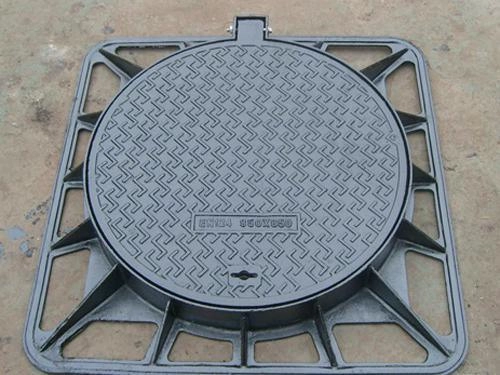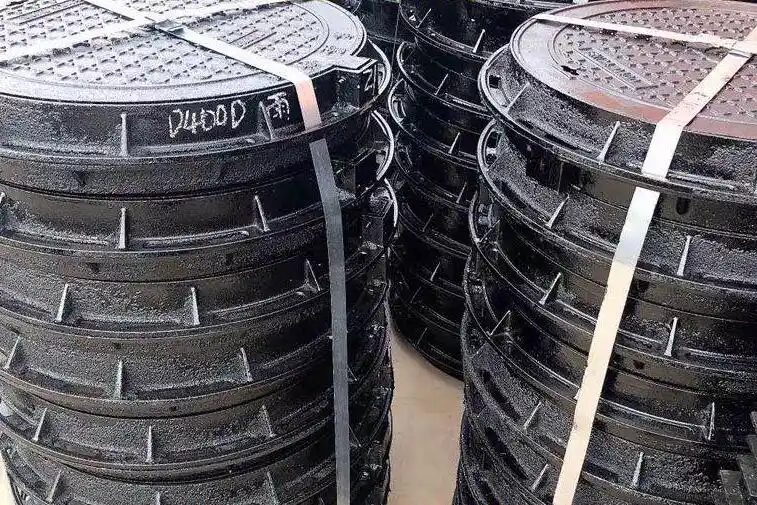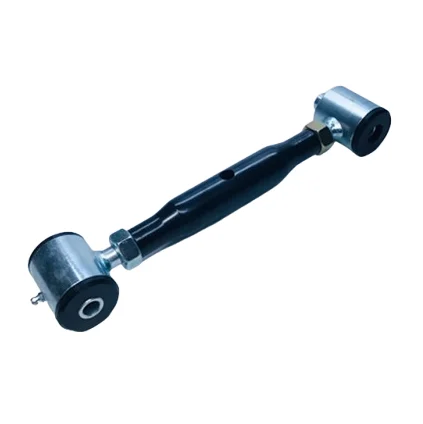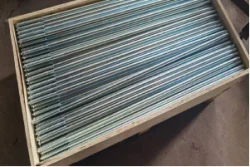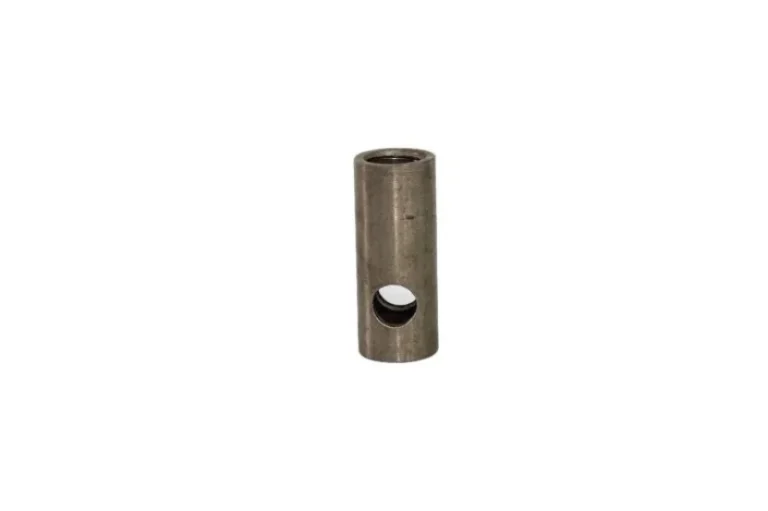Understanding the Importance of Material Selection in Manhole Covers
Role of Manhole Covers in Urban Infrastructure
Manhole covers are essential components in urban infrastructure, providing secure access points to subterranean utilities like sewage systems, electrical lines, and telecommunications networks. These covers are vital for ensuring the safety of both pedestrians and vehicles by preventing accidental falls into open manholes. Moreover, they safeguard critical infrastructure from environmental factors and unauthorized access. The choice of material for manufacturing these covers is crucial, as it can greatly influence their performance, durability, and overall effectiveness.
Durability and Safety Considerations
When evaluating material choices for Manhole Covers, durability and safety are paramount concerns. Covers constructed from robust materials can withstand immense pressure and varied weather conditions, ensuring long-term reliability. Safety concerns include resistance to damage from vehicles and protection against unauthorized removal. The right material enhances the structural integrity of the cover, reducing the likelihood of accidents and maintenance issues.
Accessibility and Design Factors
The design and accessibility of Manhole Covers are other essential considerations. A well-designed cover allows for easy access for maintenance workers while ensuring it remains secure against unauthorized tampering. The material type can influence the ease with which these covers are handled and placed, with some materials being lighter and easier to maneuver than others. Design factors also include aesthetic considerations, especially in urban environments where the appearance of public infrastructure can affect the city’s visual appeal.
Types of Materials Used in Manufacturing Manhole Covers
Traditional Cast Iron
Cast iron has been a traditional material for Manhole Covers due to its numerous benefits. Known for its strength and longevity, cast iron can withstand high traffic loads and harsh conditions. Its durability ensures that once installed, it requires minimal replacement, thus offering long-term value.
Strength and Longevity
Due to its inherent robustness, cast iron stands out as an excellent option for heavy-duty uses. Its durability ensures it can withstand years of service with minimal wear and tear, proving to be economical in the long run. This robustness guarantees that the covers remain undamaged under various stresses, thereby maintaining the safety of urban infrastructure.
Maintenance Requirements
While cast iron offers durability, it does come with maintenance requirements to prevent rust and corrosion. Regular inspections and occasional anti-corrosion treatments are necessary to maintain the structural integrity of the covers. Despite these needs, the longevity and resilience of cast iron often justify the maintenance costs.
Modern Composite Materials
Modern composite materials are increasingly being used for Manhole Covers due to their innovative properties. These materials often combine several elements to leverage the benefits of each, resulting in a highly practical solution.
Lightweight and Easy Handling
One significant advantage of composite materials is their lightweight nature. This makes the covers easier to handle, transport, and install, reducing labor costs and time. The lighter weight also aids in safety during installations and removals, minimizing the risk of injury to workers.
Resistance to Corrosion and Theft
Composite materials naturally resist corrosion, which means they do not require regular maintenance treatments. Additionally, composite covers are less appealing to thieves who look to sell metal for scrap, unlike metal covers. This resistance to theft lowers the chance of needing early replacements.
Comparing Metal Alloys for Manhole Covers
Ductile Iron vs. Gray Iron
When comparing metal alloys for Manhole Covers, ductile iron and gray iron are two prominent options. Understanding the differences between these materials helps in making an informed choice.
Differences in Flexibility and Strength
Ductile iron is known for its flexibility and strength, which makes it less prone to cracking under pressure compared to gray iron. This flexibility allows ductile iron covers to absorb impacts better, providing enhanced durability. Gray iron, while strong, tends to be more brittle, which can lead to cracks in high-stress scenarios.
Impact on Installation Processes
The material choice also affects the installation process. Ductile iron, being more flexible, is generally easier to manage during the installation phase. The brittleness inherent in gray iron can make the installation process more challenging and may require more careful handling to avoid damage.
Environmental Impact of Different Materials
Recycling Capabilities of Metal Covers
The environmental impact of manhole covers is an essential factor when choosing materials. Metal covers, such as those made from cast iron and ductile iron, boast high recyclability. This allows them to be melted down and repurposed in new products, thereby decreasing the need for virgin materials and promoting circular economy principles.
Eco-Friendly Benefits of Composite Materials
Composite materials often have lower carbon footprints than metal covers due to their production processes. Additionally, some composite materials are designed to be eco-friendly, utilizing recycled content and being recyclable themselves. This contributes to reduced environmental impact, aligning with green infrastructure goals.
Economic Factors in Material Choice for Manhole Covers
Cost-Effectiveness of Various Materials
Initial Investment vs. Long-Term Savings
The cost-effectiveness of Manhole Covers involves balancing the initial investment against long-term savings. While materials like cast iron might have higher upfront costs, their longevity and durability can result in lower long-term expenses. Conversely, composite materials might offer lower initial costs and easier handling, which can translate to immediate financial benefits.
Maintenance Costs Over Time
Maintenance is a significant economic factor in material choice. Materials that require frequent maintenance, such as traditional metals susceptible to rust, can incur ongoing costs. Composite materials, with their resistance to corrosion and theft, present an opportunity for reduced maintenance expenditures.
Implications for Municipal Budgets
For municipalities, the selection of material for Manhole Covers can significantly impact budget allocations. Opting for durable materials that necessitate less frequent replacements and minimal maintenance can free up funds for other infrastructure projects. On the other hand, choosing less expensive materials that require higher maintenance can put a strain on municipal budgets in the long run.
Technological Advancements in Manhole Cover Materials
Innovations in Manufacturing Processes
Over the years, the manufacturing processes for Manhole Covers have seen significant technological advancements. Modern techniques have not only streamlined production but also enhanced the durability and performance of these essential urban infrastructure components.
Enhanced Durability through Modern Techniques
The implementation of advanced casting and molding technologies has significantly increased the durability of Manhole Covers. Innovative techniques allow for creating covers with consistent thickness and strength, reducing weak points that could lead to breakages. Moreover, the use of alloying elements and precise chemical compositions in metal covers has further improved their resistance to wear and environmental stress.
Smart Features Integrated into Material Design
In recent years, the integration of smart features into the design materials of Manhole Covers has emerged as a groundbreaking development. These smart features include sensors embedded within the covers that can monitor conditions such as water levels, pressure, and temperature. Such innovations provide real-time data to municipalities, enabling swift responses to potential issues like flooding or unauthorized access, thereby enhancing public safety and infrastructure integrity.
The Future of Manhole Cover Technology
As we look ahead, the future of technology for Manhole Covers is set to welcome additional advancements that emphasize sustainability, safety, and efficiency.
Potential Developments in Eco-Friendly Materials
The pursuit of eco-friendly materials for Manhole Covers is gaining momentum. Researchers and manufacturers are exploring the use of sustainable materials such as recycled plastics and bio-composites. These materials not only lower the carbon footprint but also benefit from being lightweight and corrosion-resistant. The implementation of such materials can significantly contribute to environmentally conscious urban planning.
Advances in Safety and Durability Mechanisms
Future manhole cover technology is also likely to see advances in safety and durability mechanisms. Innovative locking systems and tamper-proof designs can prevent unauthorized access while providing easy entry for maintenance personnel. Additionally, the continuous improvement of composite materials and alloys will yield covers that offer superior resistance to impact, wear, and environmental factors. These advancements will ensure that Manhole Covers remain robust and reliable, safeguarding the infrastructure for years to come.
In conclusion, the evolution of materials used in Manhole Covers reflects the broader trends in urban infrastructure development. Technological advancements, from enhanced manufacturing processes to smart integrations, are paving the way for more durable, safe, and environmentally friendly solutions. The continued focus on sustainability and innovation will undoubtedly shape the next generation of Manhole Covers, contributing to more resilient and efficient urban environments.
BAOQI specializes in producing a variety of cast iron products for different applications.
BAOQI is a Chinese company specializing in the production and export of forging, casting, and punching parts, with over 10 years of experience. They operate four ISO-9001 certified factories and offer products such as building hardware, machinery parts, and municipal castings. BAOQI emphasizes quality control, timely delivery, and global distribution. Their innovative solutions aim to enhance the construction process, making it faster, safer, and more sustainable.

